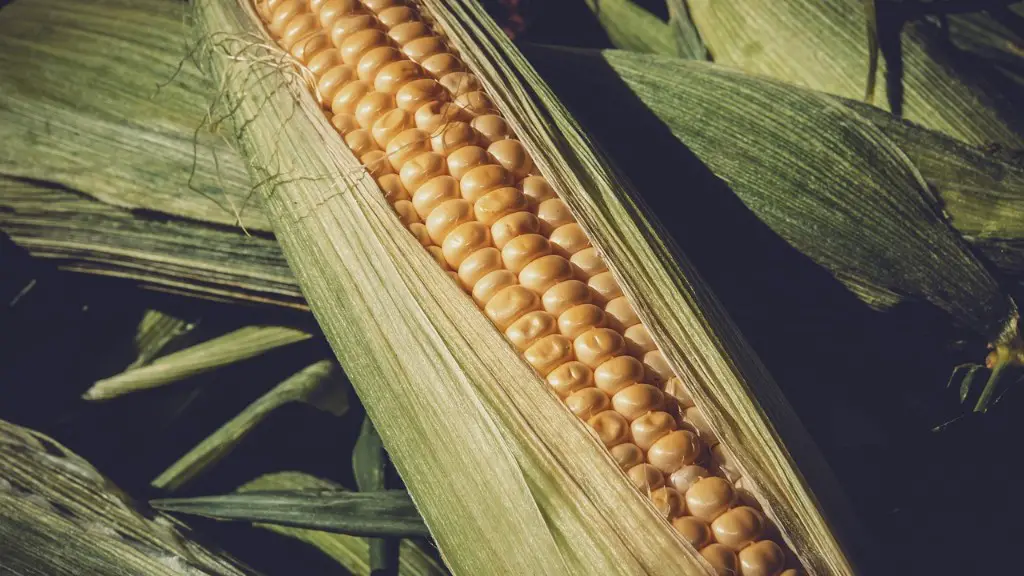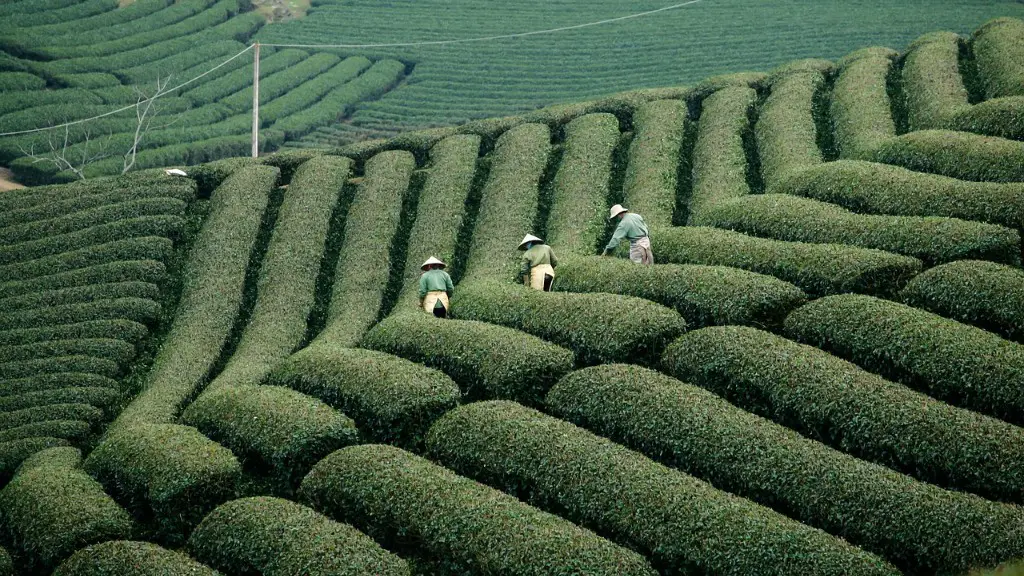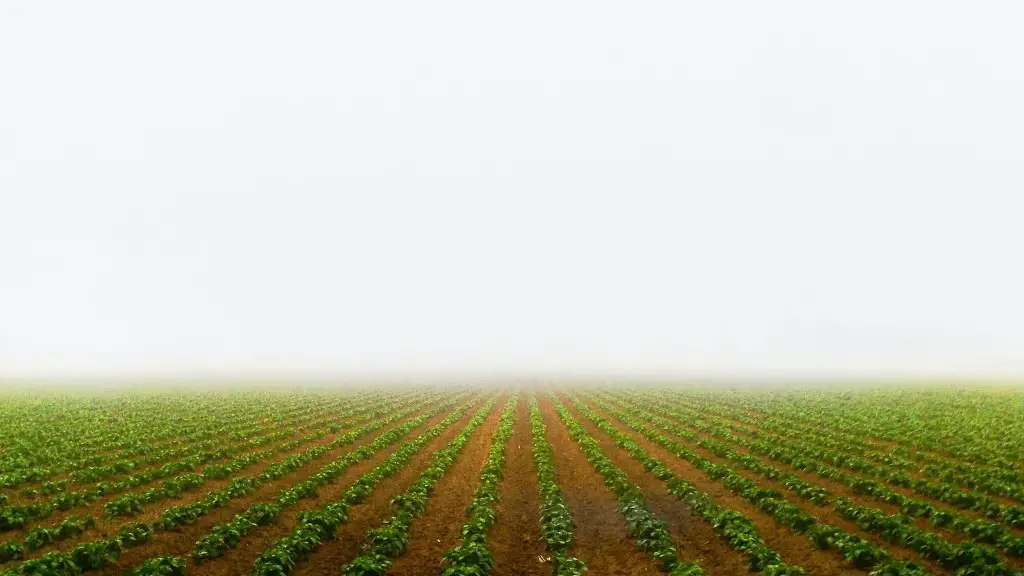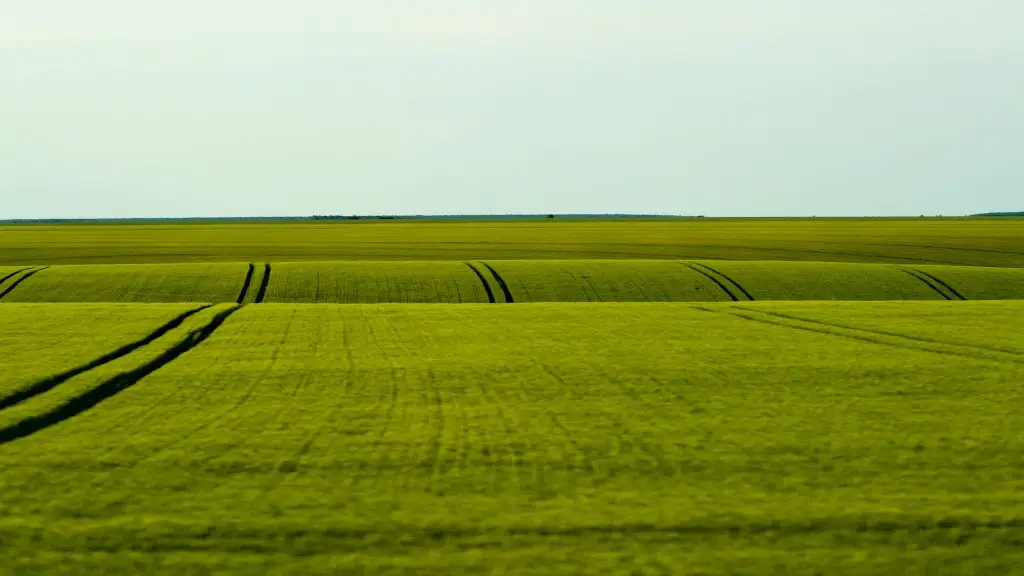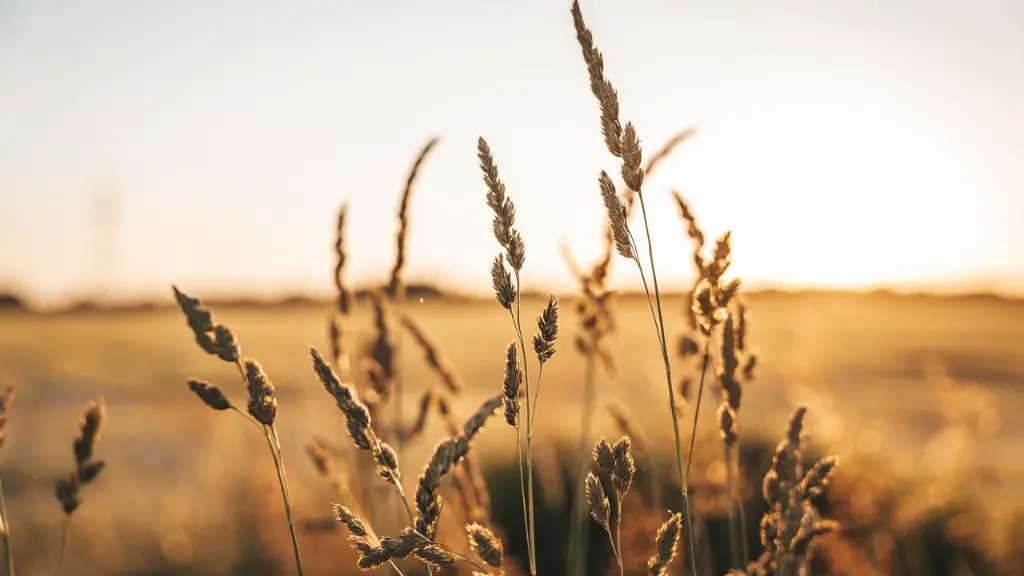Agriculture plays a critical role in the health of the environment. Agricultural practices can help to improve water quality, reduce soil erosion, and promote more efficient use of resources. In addition, agriculture can provide habitat for wildlife, help to sequester carbon, and play a role in climate change mitigation.
Agriculture is important to the environment because it helps to maintain healthy ecosystems. Agriculture can help to improve water quality and soil health, and it can also provide habitats for wildlife.
What are 3 effects of agriculture on the environment?
Conventional farming is the main contributor to climate change, pollution, and depletion of resources. This method of farming is not sustainable and needs to be changed in order to protect our environment.
There is a lot of potential for reducing greenhouse gas emissions and increasing carbon sequestration through changes in agricultural production. Farm operators can change production practices or land use to increase the amount of carbon stored in soil or vegetation. This can have a big impact on the amount of carbon dioxide in the atmosphere and help to combat climate change.
What is agriculture and why is it important
Agriculture has been a part of human life for millennia, and it is an essential part of our survival. It is the practice of cultivating natural resources to sustain human life and provide economic gain. Agriculture combines the creativity, imagination, and skill involved in planting crops and raising animals with modern production methods and new technologies.
Today, agriculture is more complex and diverse than ever before. There are many different types of agriculture, and each has its own set of challenges and opportunities. With the right knowledge and tools, anyone can be a successful farmer.
Agriculture is important for a variety of reasons. It is the main source of raw materials for many industries, it is important to international trade, it plays a big role in a nation’s revenue, it provides employment, it’s crucial to a country’s development, it can help heal the environment, and it goes hand-in-hand with war.
What is the positive impact of agriculture?
Negative impacts from agriculture can be serious, but the industry can also have positive environmental impacts. For example, agriculture can trap greenhouse gases within crops and soils, or mitigate flood risks through the adoption of certain farming practices. These positive impacts can help offset some of the damage caused by agriculture.
Climate change is a major challenge that agriculture must contend with in the coming years. But there are practices that can help make farms more resilient.
Regenerative agriculture practices, such as no-till cultivation, not burning stubbles, and planting cover crops, can ensure that plants and soil are in the best condition to tolerate drought and erratic rainfall. These practices can also help improve soil health, which is essential for long-term productivity.
In addition, supporting healthy populations of pollinators and other beneficial insects can also help make agricultural ecosystems more resilient. These insects provide vital ecosystem services, such as pollination, that can help mitigate the impacts of climate change.
Ultimately, climate-resilient agriculture will require a combination of practices that improve soil, plant, and animal health. By implementing these practices, we can improve the resilience of our agricultural systems and help ensure food security in the face of a changing climate.
What are the impacts of agriculture to the society?
The impact of agriculture on the environment is becoming increasingly evident. Agriculture globally exerts increasing pressure on the land and water resources of the earth, which often results in land degradation (such as soil erosion and salinization), and eutrophication. Agriculture is also associated with greenhouse gas emissions (Kirchmann and Thorvaldsson 2000). These impacts are resulting in serious consequences for the environment, and for the sustainable development of agriculture itself.
Farming has had a detrimental effect on the environment for years now. The main contribution is to global warming, but there are other ways it can be damaging. One way is deforestation. When trees are cut down and the land is turned into farmland, it changes the way the land absorbs and stores carbon dioxide. This can lead to an increase in greenhouse gases in the atmosphere and contribute to climate change.
What are 5 reasons why agriculture is important
Agriculture is the main source of raw materials for major industries in developing countries. These industries include the production of cotton and jute fabric, sugar, tobacco, and edible and non-edible oils. In addition, many other industries that process fruits and vegetables, and rice husking, rely heavily on agricultural raw materials.
The present era of farming contains many different types of agriculture, including dairy, fruit, forestry, poultry, and beekeeping. However, agriculture can be broadly defined as the cultivation, processing, marketing, and distribution of crops and livestock products.
The importance of agriculture to society cannot be understated. Agriculture provides the food that we eat, the fiber that we wear, and the fuel that powers our homes and vehicles. It also helps to maintain the natural environment and provides employment for a large percentage of the world’s population.
As the world’s population continues to grow, the demand for food, fiber, and fuel will only increase. The importance of agriculture will continue to grow along with it.
What are the five benefits of agriculture?
Farming is a great way to stay healthy and fit. It is also a challenging and stimulating job that can provide a good source of income in rural areas. Farm work can help develop younger generations and farming can help the environment thrive.
Agriculture is one of the most important aspects of the Nigerian economy, accounting for a significant portion of the country’s GDP. The sector employs a large percentage of the country’s workforce, and provides a major source of foreign exchange and export earnings. Agriculture also plays a vital role in providing food for the country’s population, as well as raw materials for industry. In addition, agriculture plays an important role in preserving the environment and natural resources, and in providing means of subsistence for rural communities.
What are the most importance of agriculture
The World Bank Group is a leading financier of agriculture. Its latest estimates show that agriculture can help reduce poverty, raise incomes and improve food security for 80% of the world’s poor, who live in rural areas and work mainly in farming.
The Bank’s strategy is to promote “inclusive growth” in the agricultural sector, which benefits smallholder farmers, particularly women and other marginalized groups. Inclusive growth creates jobs and improves incomes and food security, while also helping to conserve natural resources and promote environmental sustainability.
The Bank’s approach is based on four pillars:
1. Investments in rural infrastructure and services
2. Inclusive finance for smallholders
3. Improved productivity and market access
4. Building resilience to climate change and other shocks
The Bank is committed to working with governments, the private sector, civil society and other partners to implement this strategy.
Cow milk is the top agricultural product in 37 countries, while wheat is the top agricultural product in 14 countries. Corn is the most produced crop globally with 11 billion tons, followed by wheat with 7609 million tons and rice with 7567 million tons.
What are five environmental effects of agriculture?
While the development of agriculture positively affects the natural life, oxygen production and climate in the region, inorganic nitrate pollution, pesticide pollution and salinity problems can be listed as the negative effects of agriculture on the environment, especially in regions where intensive farming is practised. Measures should be taken to mitigate these negative effects in order to protect the environment and the health of those living in agricultural regions.
Agriculture can have a big impact on the environment, both positive and negative. It can lead to soil erosion and water pollution, and contribute to climate change. It can also cause deforestation.
How agriculture changed the life of human life
Agriculture has caused many changes in human life. Most notably, it has allowed for people to settle down in one place instead of being nomadic. This has allowed for the growth of food and the establishment of civilizations.
The way we produce food is a major contributor to climate change. Between clearing land to farm and the farming itself, agriculture is responsible for 21 percent of global emissions. That’s much more than the carbon spewing out of every car, plane, and train on Earth.
We need to find a way to produce food that doesn’t damage the environment. otherwise, we’re trading enormous greenhouse gas emissions for food to feed the planet.
Final Words
Agriculture is one of the most important activities humans undertake in order to meet their basic needs. Agriculture provides food, fuel, fiber, and other products essential to human life and wellbeing. Agriculture also plays a vital role in the health of the environment. Agricultural practices help to ensure a clean and reliable water supply, they help to control erosion and pollution, and they are important for the conservation of biodiverse habitats.
Agriculture is important to the environment because it is a renewable source of land. Agriculture is also responsible for the management of natural resources and the protection of the environment.

